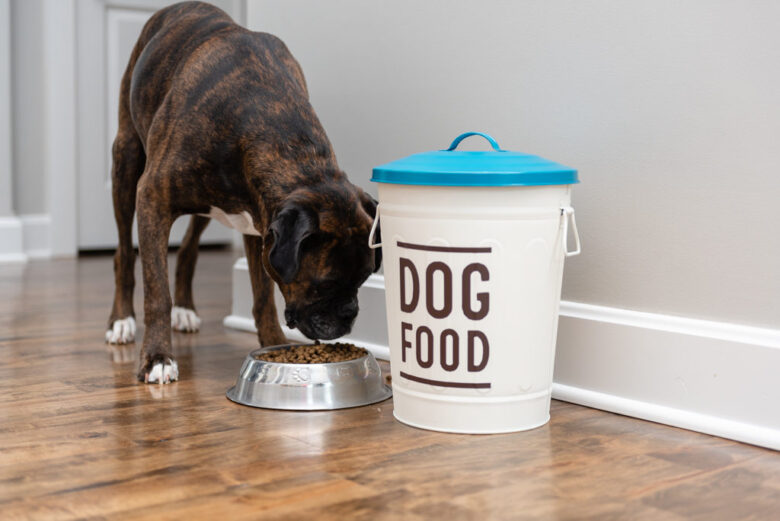In this generation of nuclear families, people living alone for their careers or studies or even trying to find some solitude, some have furry friends to give them company. That pet can become their entire emotional support system. However, these furry companions also need proper care and are sometimes high maintenance. There is nothing more disheartening than seeing your pet in bad health.
Because of these issues and to find a way to keep the pets healthy, customized pet nutrition is highly recommended. Be it cat food, dog food, or even pet dietary requirements that suit the specific breed or animal, all of these are considered while making these customized pet nutrition products.
Contents
- Why Is Customized Pet Nutrition Becoming So Important?
- How Do You Tailor The Diet For Your Pets Specific Needs?
- Important Factors For Customized Pet Diets
- Things To Know When Transitioning To A Customized Diet For Pets
- Consideration for Life Stage and Health Conditions
- The Role of Nutritional Supplements
- Environmental and Lifestyle Factors
- Continuous Evaluation and Adjustments
- Conclusion
Why Is Customized Pet Nutrition Becoming So Important?
Just like every human being has varied requirements and necessities, it is also no different for furry friends. Every pet is built differently and would surely have different needs. They tend to have specific characteristics according to their breed, age, and size. These factors also significantly influence their dietary needs, and they must be fed and cared for accordingly.
If cat food is considered, the customization for a British Shorthair one would always differ from a Siamese one. Hence, these pet nutrition schemes ensure that the pet receives exactly what they need—nothing more, nothing less either!

Source: supremesourcepet.com
How Do You Tailor The Diet For Your Pets Specific Needs?
Being a common pet parent, it would be very difficult for someone to understand what their emotional companion needs accurately. It becomes crucial that some consultation with veterinarians and nutritionists is considered.
The cat food or the dog food they would prescribe would help increase your pet’s metabolism and health to a great extent as well. Thorough pet health evaluations are performed to analyze medical history, current health issues, and nutritional deficits.
Important Factors For Customized Pet Diets
Maintaining a balance between macronutrients, including proteins, carbs, and fats, is important. The incorporation of essential vitamins and minerals supports general health. Specific dietary restrictions or allergies are considered by choosing the proper ingredients or formulations.
This is the salient step in switching to customized diets, especially dog and cat food. Just like nutrients are important for humans, pets also need them in the right quantities. If this is compromised, they tend to fall ill very easily.
Things To Know When Transitioning To A Customized Diet For Pets
The pets’ bodies also need time to get used to their new food and diet. Doing all of it hastily can have negative effects. Hence, the transition should be gradual, and everything should be noted. If the food suits your pet and you see any changes, be it positive or negative. Regular consultations with the vet are extremely necessary so that they can know if any changes in the customized diet are required.

Source: ricksdogdeli.com
Consideration for Life Stage and Health Conditions
Pet nutrition should be tailored according to different life stages and health conditions. Puppies need nutrient-dense food to support their rapid growth, while adult dogs require balanced diets to maintain optimal weight. Senior dogs often need diets high in fiber and quality proteins but low in fat to meet their specific nutritional needs.
Health conditions also necessitate dietary adjustments. Conditions such as allergies may require grain-free diets, while weight management issues may necessitate low-calorie foods. Consulting with veterinarians and animal nutritionists is critical in determining appropriate diets based on a pet’s life stage and health conditions.
The Role of Nutritional Supplements
Nutritional supplements can play a significant role in a pet’s diet. For instance, omega-3 fatty acids are known to promote skin and coat health, while joint supplements can support mobility in older animals. However, the quality of these supplements is a crucial consideration. They should be selected in consultation with professionals to ensure proper dosing and suitability for a pet’s specific needs. Supplements can be particularly beneficial in supporting cognitive function in senior animals or promoting gastrointestinal health in animal’s with digestive issues.
Environmental and Lifestyle Factors
Environmental factors and lifestyle choices can significantly impact a pet’s nutritional needs. Factors such as activity level, climate, and living conditions should be considered when customizing an animal’s nutrition for their overall well-being.
Active pets, like working dogs or those engaging in intense physical activities, may require diets with higher caloric content to meet their energy demands. In colder climates, animals may benefit from diets with higher fat content to help regulate body temperature.
Conversely, animals in warmer climates may require diets with lower fat content to prevent excessive weight gain. Indoor animals may have lower activity levels, necessitating careful monitoring of their caloric intake to maintain a healthy weight. By taking these environmental factors and lifestyle choices into account, animal owners can ensure their furry companions receive the appropriate nutrition for optimal health.

Source: yumwoof.com
Continuous Evaluation and Adjustments
One of the most critical aspects of customizing pet nutrition is the need for continuous evaluation and adjustments. Animal nutrition isn’t static; it requires consistent monitoring and alteration in response to various changes that may occur in a pet’s life.
As part of a pet’s health management, regular veterinary check-ups are essential. These visits offer an opportunity to monitor the animal’s overall health and nutritional status, allowing for adjustments in their diet when needed. It is during these routine visits that sensitivities to certain foods or specific dietary requirements may be identified, leading to a more suitable and customized diet.
Furthermore, changes in an animal’s behavior, activity level, or living environment can indicate a shift in their dietary needs. For instance, as animals grow older and become less active, adjustments to their calorie intake may be necessary to prevent weight gain and maintain their overall health.
Continual communication with veterinarians and pet nutritionists is invaluable in making these adjustments. Their expertise and guidance ensure that the dietary changes made are beneficial for the animal’s health. They help animal owners understand the implications of each adjustment, ensuring that the animal’s nutritional needs are not only met but optimized for their well-being.
Conclusion
Customized pet nutrition transforms how we look after our furry friends. We can tailor each pet’s diet for optimum health and well-being by identifying and meeting their unique nutritional needs. Collaboration with experts enables pet owners to get specialized advice and food ideas that go beyond standard diets. This individualized approach enables us to give our pets the greatest nutrition, ensuring they thrive and lead the happiest, healthiest lives imaginable.
